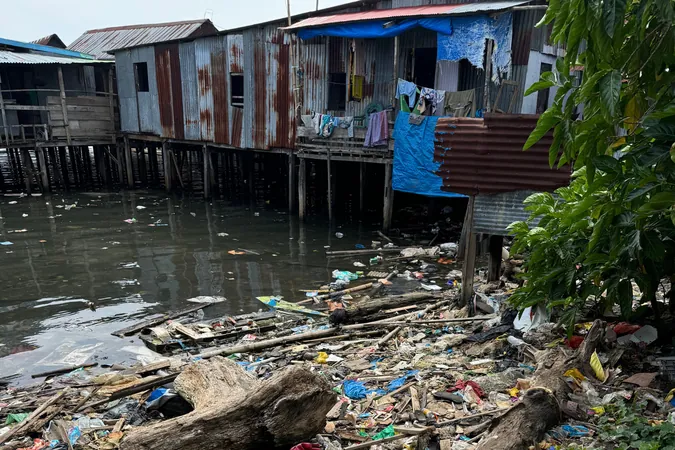
Trash Cleanup Could Be the Key to Reducing Dengue Fever Risks Amid Global Surge
2025-01-14
Author: Siti
Introduction
As dengue fever cases surge globally, reaching unprecedented levels in 2023 and 2024, new research from Stanford University sheds light on a simple, yet effective solution: community trash cleanup. This straightforward measure could significantly reduce the risk of illness caused by this viral disease transmitted by mosquitoes.
Understanding Dengue Fever
Dengue fever manifests through high fever, debilitating body aches, and can escalate to more severe forms like hemorrhagic fever or shock, particularly in individuals facing a second infection. Factors such as climate change are contributing to the expansion of dengue into areas previously unexposed, including several regions in the United States. The recent spike in cases has raised alarms about the necessity of innovative public health practices to curb this escalating issue.
Research Findings
A study conducted by Stanford researchers in collaboration with international teams focused on understanding the transmission dynamics of dengue and other mosquito-borne viruses, such as Zika and chikungunya, in children under five years old in high-incidence areas like Fiji and Indonesia. Published in the journal *BMC Infectious Diseases*, the study revealed concerning statistics: 71% of children in Fiji and 51% in Indonesia had contracted dengue by age five, highlighting the substantial impact on vulnerable populations.
Impact of Trash Cleanup
Lead author Joelle Rosser emphasized that regular garbage removal can dramatically alter the landscape of dengue risk, noting that waste often collects in spots that become breeding grounds for the Aedes aegypti mosquito, the primary vector for dengue. The study's insights suggest that improved trash disposal practices could serve as a preventive measure, not just in Indonesia but globally, including in densely populated urban areas in the U.S.
Unexpected Findings
Interestingly, while the findings linked poor waste management to heightened dengue risks, they also uncovered an unexpected trend: areas experiencing frequent flooding had lower dengue rates. This phenomenon might be attributed to floodwaters flushing out stagnant breeding sites. However, the researchers warned that without adequate waste management, flooding could still trap water in containers, creating new mosquito habitats.
Sustainability and Public Health
Dr. Isra Wahid, a senior author of the study from Hasanuddin University in Indonesia, underscored the importance of sustainability in public health policies, proposing that local governments improve trash collection systems and respond to flood risks. “These environmental modifications can pave a path to addressing arbovirus transmission in communities worldwide,” he noted.
Broader Initiatives
Furthermore, the project is part of a broader initiative called RISE (Revitalizing Informal Settlements and their Environment), aimed at enhancing community resilience to climate change impacts. By addressing infrastructure needs and promoting sustainable practices, such initiatives can drastically lower the breeding grounds for mosquitoes.
Future Research
As the threat of climate change looms large, Rosser's upcoming research will track children over several years to directly assess the effects of the RISE project interventions on infection rates. She advocates that tackling trash and improving waste management practices are powerful tools for not only combating dengue but also strengthening community health against the backdrop of climate-related challenges.
Conclusion
In conclusion, while dengue fever poses an intensifying global health threat, communities could turn the tide with proactive trash cleanup efforts, underlining an accessible way for ordinary citizens and local policymakers to engage in combating this significant public health issue.


 Brasil (PT)
Brasil (PT)
 Canada (EN)
Canada (EN)
 Chile (ES)
Chile (ES)
 Česko (CS)
Česko (CS)
 대한민국 (KO)
대한민국 (KO)
 España (ES)
España (ES)
 France (FR)
France (FR)
 Hong Kong (EN)
Hong Kong (EN)
 Italia (IT)
Italia (IT)
 日本 (JA)
日本 (JA)
 Magyarország (HU)
Magyarország (HU)
 Norge (NO)
Norge (NO)
 Polska (PL)
Polska (PL)
 Schweiz (DE)
Schweiz (DE)
 Singapore (EN)
Singapore (EN)
 Sverige (SV)
Sverige (SV)
 Suomi (FI)
Suomi (FI)
 Türkiye (TR)
Türkiye (TR)
 الإمارات العربية المتحدة (AR)
الإمارات العربية المتحدة (AR)